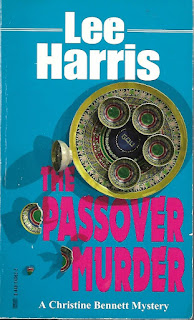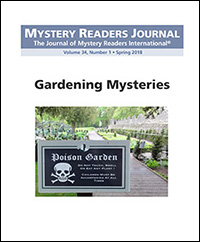If characters don’t act in congruence with how they generally try to live, there needs be a good reason or they’ll cease to be believable. An upright citizen can’t suddenly decide to rob a convenience store. The killer in a murder mystery has to either be a major creep or someone with a compelling motive or backstory that pulls anomalous behavior out of them. I find it wholly unsatisfying for the solution to a mystery to embody a less than fully explained, out of character act.
All of this is central to the success of many mysteries, including my just released latest—The Not Quite Enlightened Sleuth. As the name implies, Ivy attempts to live true to her Buddhist precepts as she returns to California from Sri Lanka and navigates a complex plot entailing multiple murders, a bi-polar sister and her dysfunctional family, as well as a budding romance. Sometimes Ivy fails to muster kindness or compassion. Sometimes she’s motivated by her personal agenda. Of course, these are components of the universal human condition, but Ivy, as a former Buddhist nun, expects more of herself.
Without inner conflict, often concerning morals, priorities, and beliefs, characters lack depth and it’s harder for readers to identify with them. We all struggle to implement our best selves, or at least reach our pragmatic goals. Characters need to do so, too, or they remain nothing more than a character in a book. We need them to come alive so readers will care about what happens to them and keep turning pages to find out.
Another important element, of course is change/transformation. The protagonist needs to undergo a process that leads somewhere, both externally—solving a mystery, for example—and internally—learning, growing, or perhaps graduating into a better life situation. Without implied or explicit attention to values, it’s hard to demonstrate that the protagonist is a somewhat different person on the last page than they were on the first. Once again, this is designed to mirror real people’s experience. Who could participate in all that Ivy encounters, for example, and remain the same? In her case, Ivy’s administration of Buddhist precepts becomes much more flexible and she learns how to integrate back into an unfamiliar world after so many years in a cloistered environment.
Personally, I’m very much a seat of the pants writer, which helps me plot creatively, but can impede what I’m recommending here. When a bit of dialogue fits the flow—feels right—it may or may not be congruent with a character’s current values. It’s certainly possible to do this in small quantities. After all, who can behave consistently about anything? But if I let my process take over and ignore the rest, I have to do a lot of rewriting.
Another challenging element in an attempt to portray values—showing, not telling— is when you’ve stretched to create a protagonist quite different than you. Perhaps you’re an attorney in Ohio trying to write an Agatha Christie-style drawing room mystery. Perhaps you’re working on a police procedural with no experience in law enforcement.
In The Not Quite Enlightened Sleuth, I create a first person female narrator when I am a man. I took this approach for several reasons. One, I wanted a challenge to keep me motivated so I would finish my manuscript. Numerous other projects fizzled out when I lost interest for various reasons. Two, I’m a psychotherapist, and I’ve worked with thousands of women, almost all of whom shared their thoughts, feeling, and problems quite candidly. I know more than most men about the psyches of women. And lastly, I thought it would provide an interesting contrast to have a truly gentle, kind protagonist dealing with violent people. Who could fit the bill better than a Buddhist nun?
I also needed to know exactly what Ivy’s values were and how her return to the secular world might challenge them. I’ve experienced something similar, so this element didn’t need as much work.
Forty years ago, I became a gung-ho spiritual seeker as a remedy for my depression and my inability to be in direct contact with the world. That led to my forming a small spiritual community with an older friend serving as the leader. When I realized he was both wise andsomewhat delusional, I graduated myself and everyone else back into the world. Then I faced what Ivy faces. It’s jarring and easy to feel lost while trying to reintegrate into mainstream culture. If I’d had murders in my family, I definitely wouldn’t have coped as well as Ivy. Her spiritual background is stronger—more durable in the face of adversity.
At any rate, those are my thoughts on this subject. To be honest, I’m exploring this for the first time in order to produce a guest blog, so you may have better or different ideas about this. I hope I’ve at least catalyzed you to take a look at characters’ values and their roles in novels, especially mysteries.
***
A mid-sized independent press published Verlin Darrow’s Blood and Wisdom, Coattail Karma, Prodigy Quest, Murder For Liar, and The Not Quite Enlightened Detective. Two of these were were runners-up in major book award contests. Also, several short stories of his were included in anthologies. Verlin lives in the woods near Monterey Bay and his psychotherapist wife diagnoses him as needed.
Visit Verlin Darrow online at: www.verlindarrow.com










